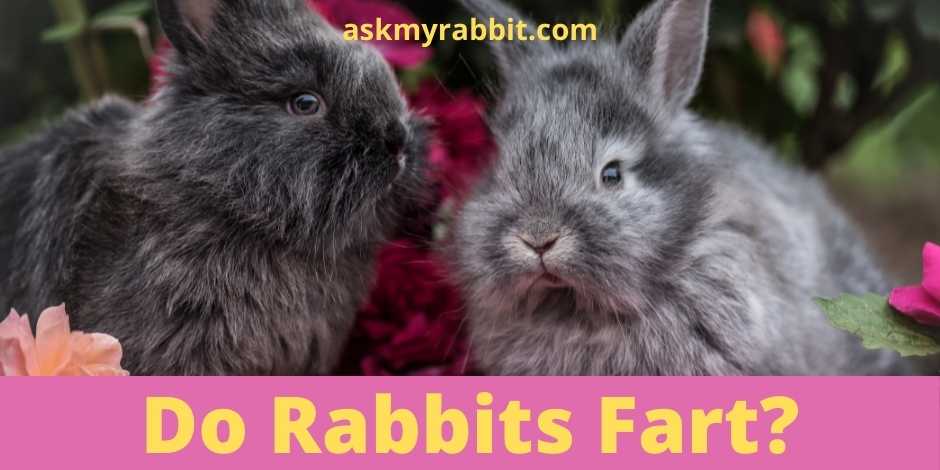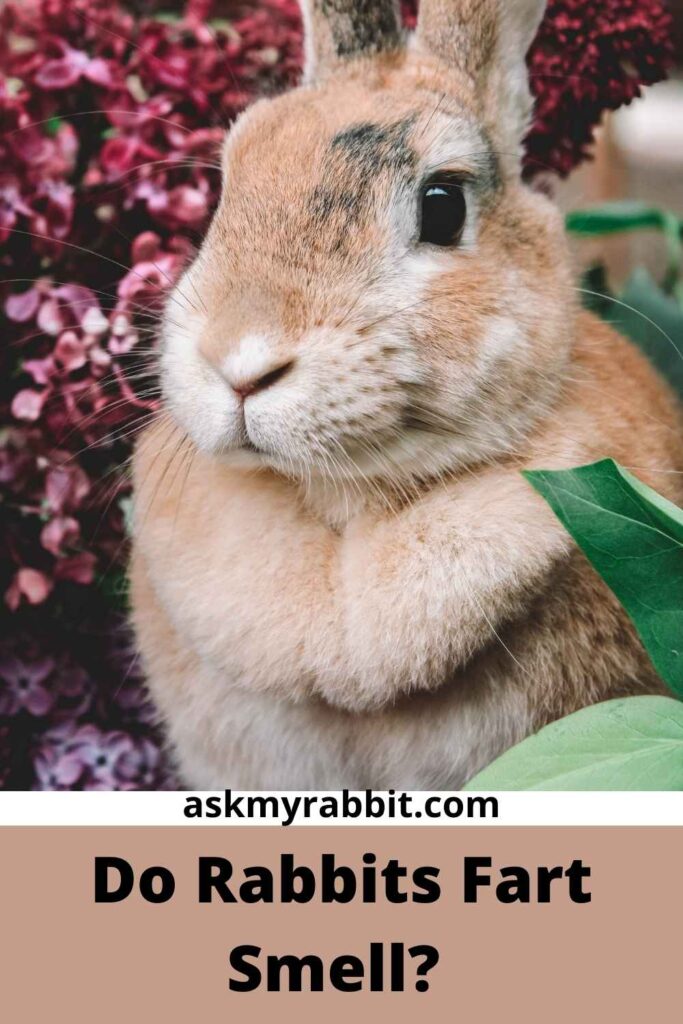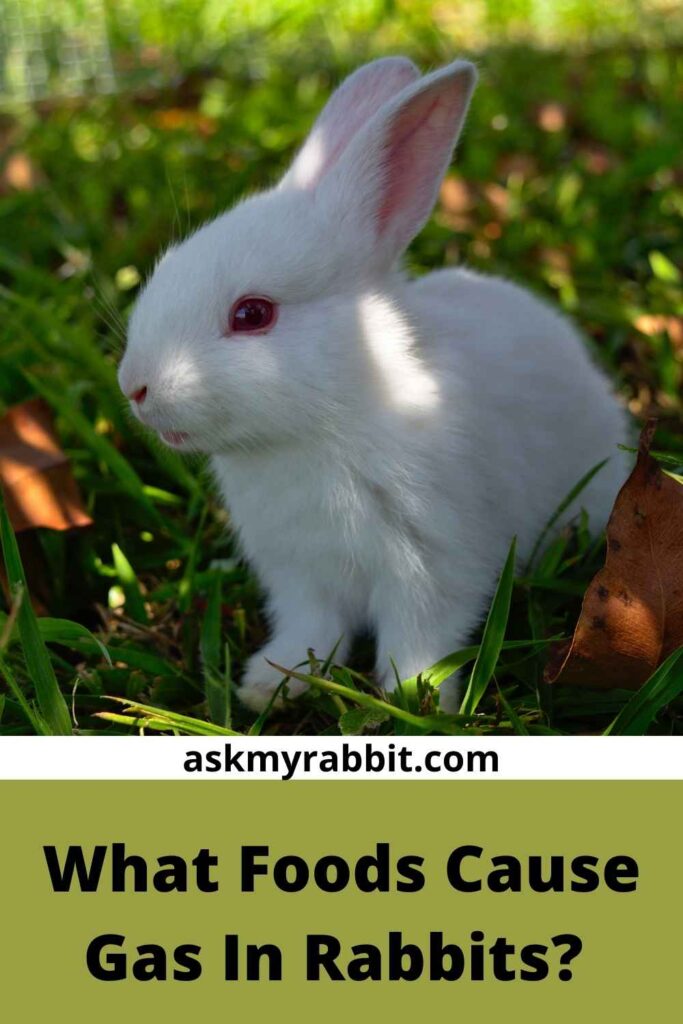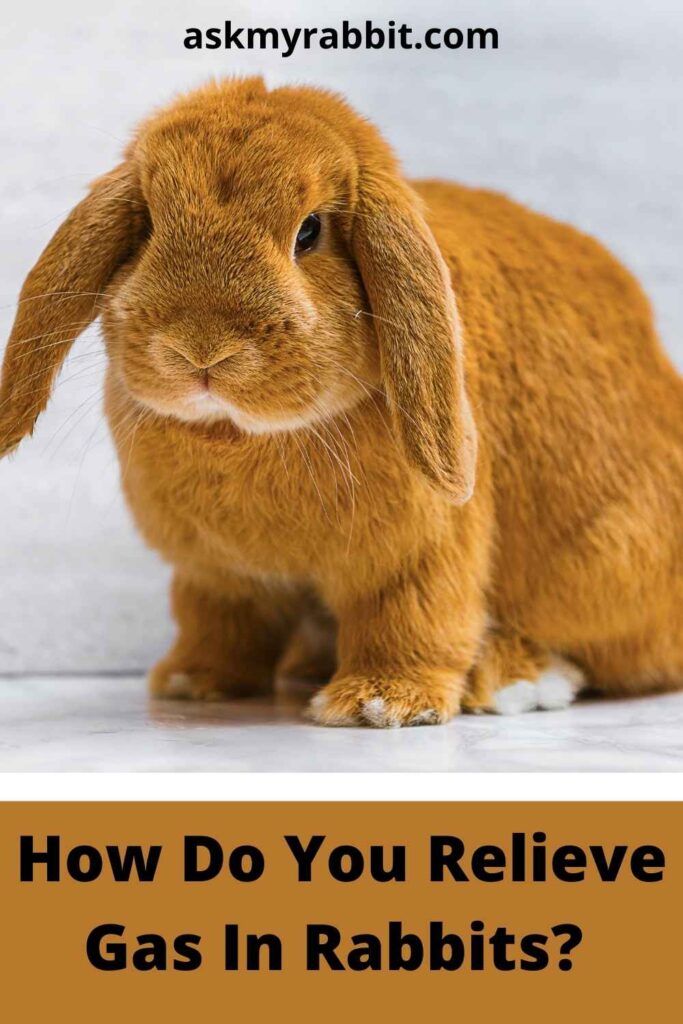Rabbits are classified as non-ruminant herbivores. This implies that while they eat plant stuff such as grass, twigs, they lack a specialized stomach for digesting plant matter. Instead, they rely on microorganisms to extract nutrients from their cellulose-based diet in their caecum.
Because their meal is first processed in their big intestine, rabbits reingest their cecotropes. These are soft faeces made up of fermented plant material. They eat it in order to receive the maximum nutrients from their diet.
Yes, rabbits do fart. The rabbit’s mildly revolting diet, as well as its digestive function, give the perfect combination for farts. Rabbits not only have the ability to fart and do so, but they also require it.
Stress, dehydration, and a low-fiber, high-carbohydrate, high-sugar diet can cause gas to build up in their intestines. This condition is known as intestinal stasis.
While farts are frequently amusing, they are not amusing for rabbits. The gas build-up is exceedingly uncomfortable and can soon become lethal if not properly discharged, necessitating medical intervention.
In this article, we will inform you all about rabbits farting. Therefore, keep reading!

Do Rabbits Fart Smell?

Yes, rabbit fart does smell. Rabbit farts are mostly quiet and odorless to human hearing and nostrils. You’re unlikely to hear your rabbit make amusing farting noises.
However, there is some anecdotal evidence that rabbits do occasionally pass gas with an accompanying sound or odor. Rabbit owners will occasionally tell you about being in the same room as their rabbit and hearing a strange noise.
A rabbit fart is described as sounding like a little squeak of air escaping a balloon. That seems realistic to me; it’s roughly what a nice tiny bunny fart should sound like.
I have never heard a rabbit fart, but I have smelled one. Growing up, one of my family’s rabbits appeared to be a little uneasy in his sitting position. Then he let out a long sigh and sank into a cozy slumber. There was a faint odor in the air a few moments later. I’m guessing the tiny bun let out a small amount of trapped gas.
Can You Hear A Rabbit Fart?
Yes, you may hear a rabbit fart, although, it might be rare. The sole evidence indicating that rabbits fart is anecdotal.
While some videos of rabbits farting are available online, the majority appear to be manufactured or modified after the event to incorporate fart sounds.
While their bunnies are around, some rabbit owners describe hearing noises that appear to be farts. Rabbits frightening themselves with farting noises, rabbits fleeing the room directly after the farting noise with a lingering stench, and other amusing anecdotes are among them.
Why Is My Bunny So Gassy?
On rare occasions, a rabbit will release gas in the form of flatulence. This is a normal part of the digestion process. However, if your rabbit is always gassy, there might be a problem.
The major cause of your bunny being gassy is an unhealthy diet that is heavy in carbs and sweets and poor in indigestible fiber. Gas or GI stasis can also be caused by stress, insufficient water intake or other ailments.
Flatulence in rabbits is most often caused by an improper diet. Gas is caused by foods that are heavy in carbs or sugar. Gas is also caused by stress and dehydration.
Gas can cause GI stasis in bunnies if left untreated. This is a life-threatening sickness that kills the majority of rabbits within a day. Make sure your rabbit is eating a balanced diet, and treat gas as soon as it appears.
What Foods Cause Gas In Rabbits?

A rabbit’s diet has a significant impact on the quantity of gas generated in their intestines and the amount of gas they fart.
Many pet owners assume that foods that make humans gassy will likewise make their rabbits gassy. However, this isn’t always the case.
Grains and legumes are two foods that can cause gas build-up in bunnies. Any form of bread product, beans, or peas should not be a part of your rabbits diet for this reason.
You should also restrict your rabbit’s intake of sugary fruits and vegetables. When fed to rabbits in large quantities, anything heavy in sugars and carbohydrates is known to cause gastrointestinal difficulties. That’s why, despite their persistent demand for more, you should try to avoid offering your rabbit too many sugary goodies.
Therefore, we recommend that you not give these food in large amounts to your bunny.
How Do I Know If My Rabbit Has Gas?
The following are some of the most typical signs of gas in rabbits:
- Stomach gurgles loudly
- Stomach pressed against the floor
- Lethargy
- Stomach feels firm
- Deficiency in defecation
- Appetite suppression
- Hunched position
- Flatulence
- Clenching teeth
A body temperature of less than 100 degrees Fahrenheit is considered safe. However, a low body temperature is a cause for concern.
This indicates that your rabbit has gone into shock due to gas discomfort. We recommend that you visit a veterinarian as soon as possible.
How Do You Relieve Gas In Rabbits?

If you suspect your rabbit is suffering from a gas build-up, there are a few things you may do at home to assist them. If your rabbit’s condition does not improve, a more serious problem may exist. Bring your rabbit to the veterinarian as soon as possible.
In order to relieve gas in your bunny, follow these steps:
1. Encourage Bunny To Move Around
When a rabbit moves around, gas passes through the digestive tract quickly than when it sits stationary. If your rabbit isn’t in too much discomfort, he or she could be willing to move around.
Encourage your rabbit to walk about as much as possible until they either revert to their regular behavior. If their health worsens to the point where they won’t move at all, contact your veterinarian immediately.
2. Massage
You may massage your rabbit’s stomach to assist gas to flow through the digestive tract more quickly. Gently place your hands behind your rabbit’s belly button and apply gentle pressure to it by moving it up and down and back and forth.
However, don’t put your fingers too far into the rabbit’s belly. Simply massage your stomach to help the blocked gas move along.
3. Simethicone
You might also provide paediatric simethicone to your rabbit. It’s similar to baby gas drops. It is used to assist human new-borns in passing uncomfortable gas.
You’ll need to syringe feed your rabbit roughly 1ml every three hours to do this. If the Simethicone hasn’t helped after three hours, it’s unlikely that it will.
4. Bloating
When bacteria in your rabbit’s intestines generate too much gas, it becomes stuck in the stomach. This causes bloating in the stomach. As the gas builds up, you’ll notice your rabbit’s stomach grow like a balloon to either side of its body.
This is a very severe illness that, if not treated immediately, can swiftly turn fatal. The easiest method to avoid this illness is to feed your rabbit a balanced diet that consists primarily of grass-based hay.
5. Gastrointestinal Stasis
Gastrointestinal (GI) stasis is a common gastrointestinal ailment caused in part by gas accumulation. When a rabbit’s digestive tract slows down or stops moving, it is called GI Stasis.
This is a somewhat common disease in rabbits. It can be caused by a variety of factors, including:
- Poor diet
- Lack of physical activity
- Stress
- Other health problems
While GI stasis is frequent and treatable, it can be fatal if not addressed promptly. If your rabbit hasn’t eaten or pooped in more than eight to ten hours, you should seek assistance from a veterinarian immediately.
Frequently Asked Questions
Do Rabbits Have Gas?
Yes, rabbits can have gas. Rabbits frequently suffer from gas, which can be deadly if not addressed. It is critical to treat your bunny as soon as possible if he or she is suffering from gas.
Can Rabbits Sneeze?
Yes, rabbits can sneeze. The reasons behind a rabbit’s sneeze are several. Rabbits, like their human companions, can be allergic to a variety of irritants, including home dust, perfumes, and cigarette smoke. Sneezing might also be a sign of a developing respiratory illness.
How Should A Rabbit’s Stomach Feel?
The stomach of a healthy rabbit should feel like soft dough with no lumps. You should also for mites, ticks, and fleas in the fur.
Final Words
Rabbits fart silently, which is a natural and healthy action. However, not farting enough might cause major health problems. Gas can build up in the rabbit’s intestines, causing discomfort or agony.
Build up of gas can potentially be lethal in extreme circumstances. It can cause more significant issues including stomach bloating or GI stasis.
Because gas does not travel through the digestive tract quickly enough, it can build up in a rabbit’s intestines. In this scenario, stress or a lack of exercise might be the cause.
Gas can also accumulate if the rabbit produces more gas than it should. In this situation, the rabbit’s nutrition is frequently to blame. It’s possible they ate too many sweets or anything they shouldn’t have.






